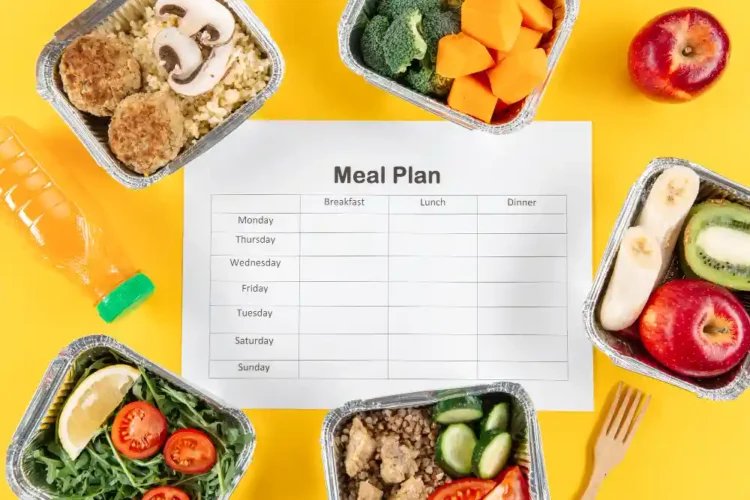Did you know that intermittent fasting is one of the most popular eating patterns worldwide? In fact, it has gained widespread attention for its potential health benefits and effectiveness in weight loss. If you’re considering intermittent fasting, you might be wondering what to eat during your eating window. Choosing the right foods can make all the difference in maximizing the benefits of this eating pattern.
Key Takeaways:
- Intermittent fasting is an eating pattern that involves limiting food intake to a specific window of time.
- During your eating intermittent fasting window, focus on nutrient-rich foods such as fruits, vegetables, whole grains, healthy fats, and protein sources.
- Avoid ultra-processed foods, sugary drinks, and deep-fried items to support your health and weight loss goals.
- Stay hydrated by drinking calorie-free beverages like water, unsweetened tea, and coffee.
- By following a balanced and healthy meal plan during intermittent fasting, you can amplify the benefits of this eating pattern.
Benefits of Intermittent Fasting
Intermittent fasting offers various benefits beyond weight loss. It can improve blood sugar control and insulin sensitivity, reducing the risk of diabetes. Intermittent fasting is also associated with increased weight loss, as it helps create a calorie deficit.
Additionally, it may promote healthy aging by activating certain pathways in the body that protect against cellular damage. Studies suggest that intermittent fasting may have a positive impact on heart health by reducing LDL cholesterol levels and inflammation.
It can also support brain health by increasing a hormone called BDNF, which aids in the growth of new nerve cells. Overall, intermittent fasting has the potential to improve overall health and well-being when combined with a nutritious meal plan.
Is Intermittent Fasting Right for You?
While intermittent fasting can be a beneficial eating pattern for many people, it’s important to assess whether it’s suitable for you. Consulting with a healthcare professional before starting an intermittent fasting regimen is crucial, especially if you have underlying health conditions or take medications.
Intermittent fasting is not recommended for children, teens, individuals with a history of eating disorders, and pregnant or breastfeeding women. It’s essential to prioritize your well-being and listen to your body. If you experience any negative symptoms or discomfort, it’s important to stop fasting and reevaluate your approach.
If intermittent fasting is a suitable choice for you, starting with a realistic and sustainable approach, such as the 16/8 method, is advisable. Gradually adjust your fasting window based on your lifestyle and preferences. During your eating window, it’s important to focus on consuming whole, nutrient-dense foods that support your overall health and well-being.











